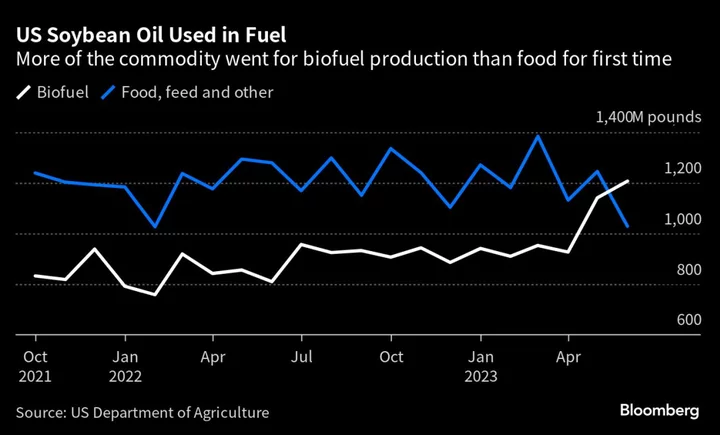
Shake Shack Tests Oil to Make Its Fries Healthier and Greener
Your next ’shroom burger from Shake Shack Inc. may be prepared using a frying oil that comes from
2023-09-18 20:49
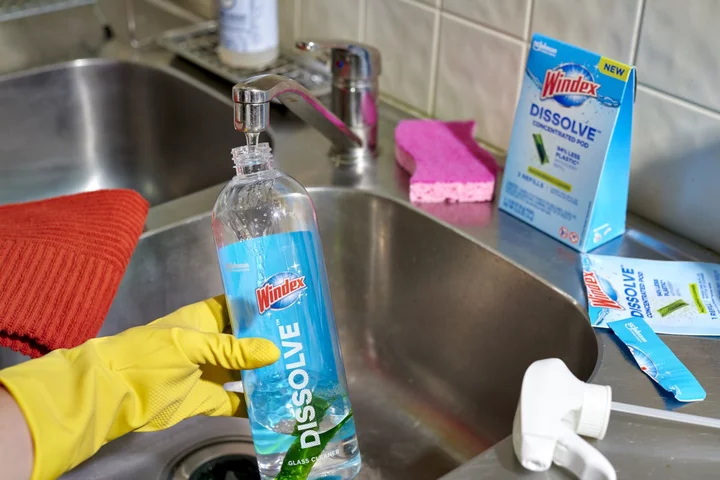
Regulators Are Trying to Stop Greenwashing Before It Gets Worse
In 2021, a series of HSBC advertisements started appearing on bus stops around the UK. Part of a
2023-09-18 07:21
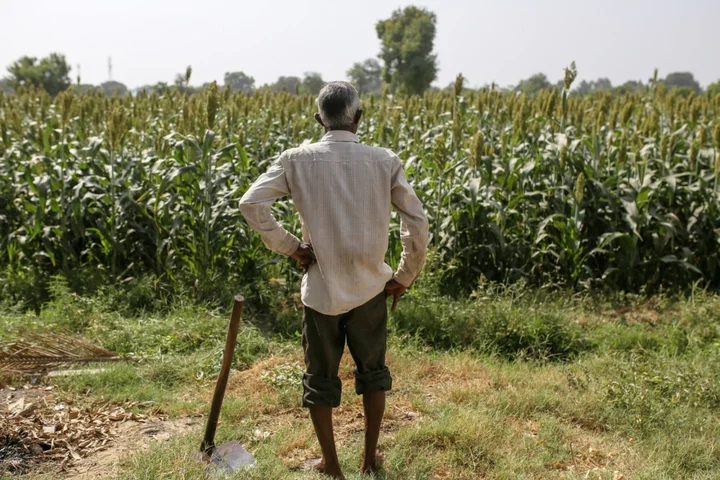
Extreme Weather Turns Up the Heat on Investing in Agriculture
The world’s increasingly volatile climate is now one of the core risks to manage when it comes to
2023-09-15 09:46
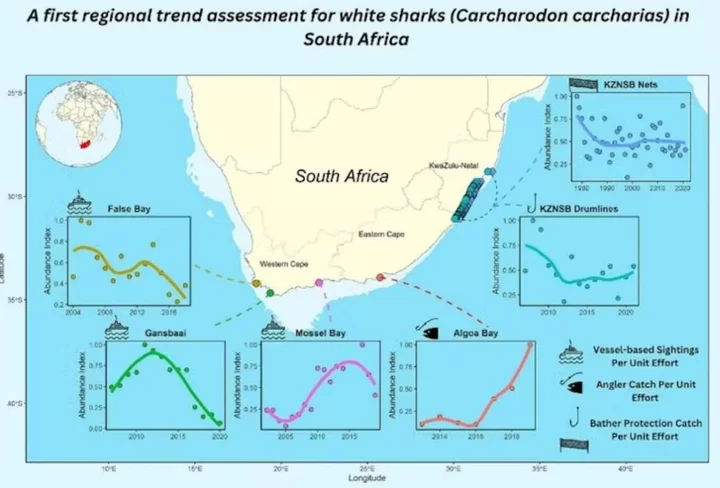
South Africa Told to Boost Beach Safety As Great White Sharks Move East
An eastward shift by one of the world’s biggest populations of great white sharks is increasing the need
2023-09-14 17:25
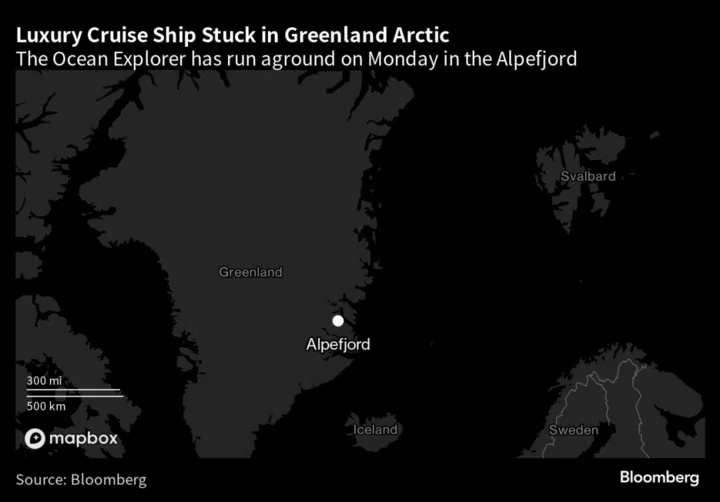
Stranded Cruise Ship Shows Risks of More Traffic in Remote Arctic
The grounding of a luxury cruise ship off the coast of Greenland on Monday highlighted the irony of
2023-09-14 12:58
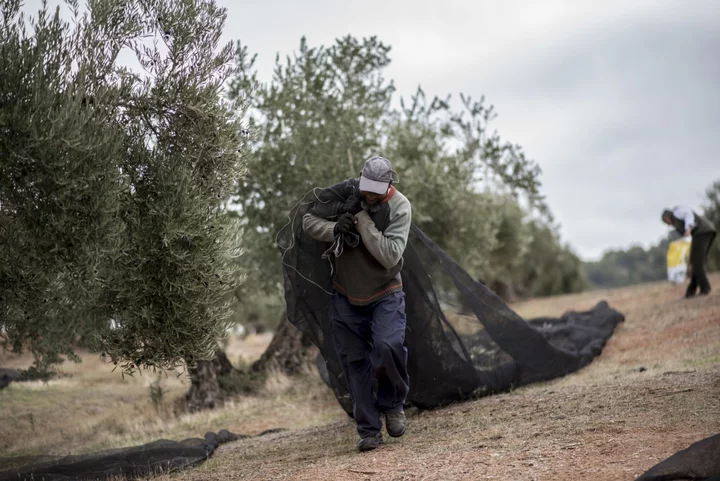
Thieves Target ‘Liquid Gold’ as Olive Oil Prices Soar
Another brazen theft of Spanish olive oil — this time worth over half a million dollars — is
2023-09-06 13:23
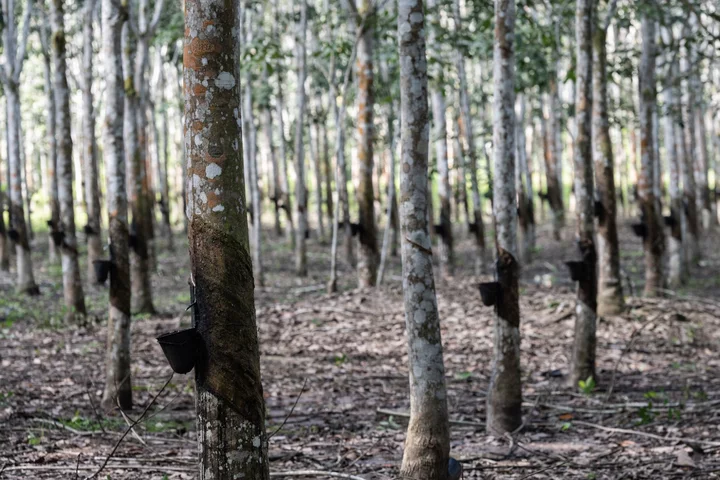
Top Green Fund Backs Deforestation-Free Crops With $189 Million
The world’s biggest global climate fund has approved a $189 million commitment to &Green facility to support agriculture
2023-09-04 23:55
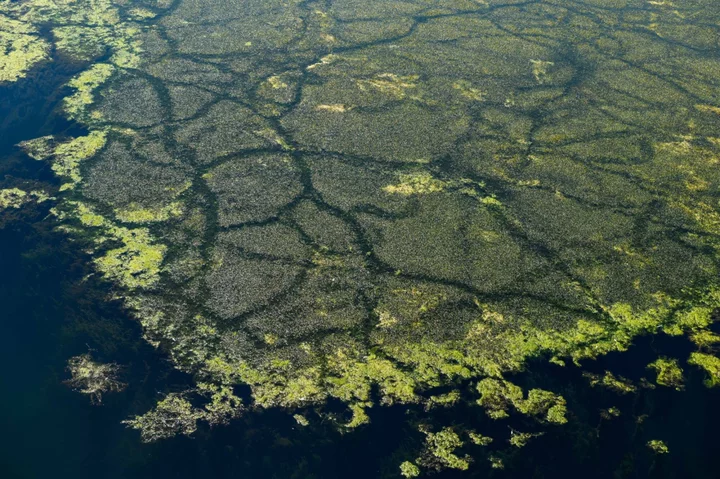
Alien Species Threaten Food Supply, Public Health And Cost $423 Billion
Non-native species -- displaced either by global trade and travel or by climate change -- pose “a severe
2023-09-04 20:55
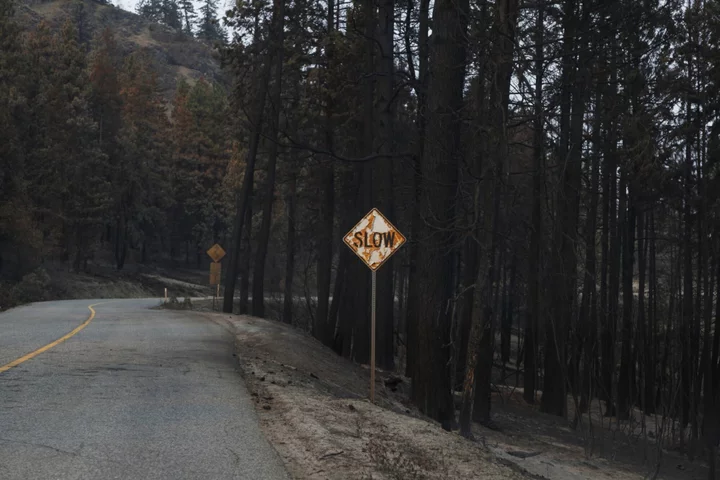
Record-Breaking Wildfires Drag Economic Growth Lower in Canada
Canada’s worst wildfire season on record, along with growing droughts in many parts of the country, have taken
2023-09-02 00:26
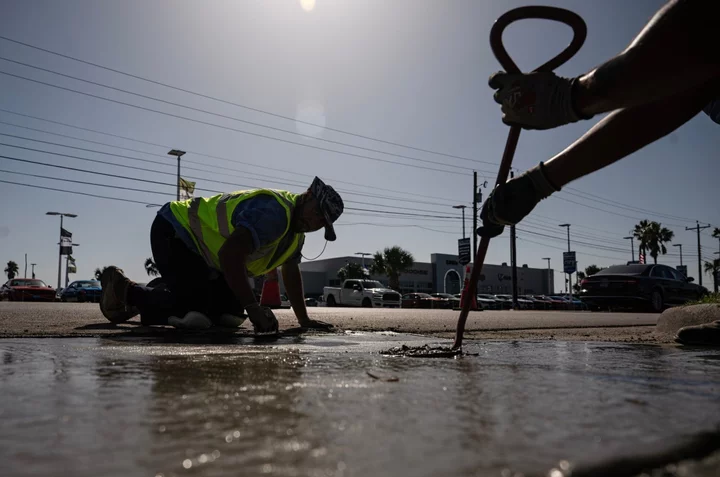
Startups Are Inventing Cooling Clothes for a Hotter Future
Every morning, thousands of construction workers in Qatar start their day by soaking their uniforms in water. The
2023-09-01 18:45

The future of Prosecco is at risk
Some of the world’s most celebrated wines – and the historic cultures of the communities which produce them – are under threat, scientists have warned. The harvesting of grapes on steep slopes is known as “heroic” viticulture – named so for the difficulty in producing fruitful harvests on such challenging terrain, typically without the use of mechanised tools, and many such vineyards across Europe have been designated Unesco world heritage sites. But researchers have warned that farmers and scientists must work together to protect this centuries-old tradition in the likes of Italy, Spain and Portugal, where climate change is threatening to disrupt the delicate equilibrium cultivated and maintained for generations. Scientists set out their concerns in a paper last month published in the journal iScience, warning that soil degradation and drought – such as those which devastated swathes of Europe last year – are the most worrying risks posed by climate change. Furthermore, the researchers from the University of Padova warned of a simultaneous threat posed by the “rural exodus and a gradual abandonment of mountain landscapes” which have “characterised” the past 50 years. “The new generation is not attracted to continue working under extreme conditions if economic benefits are insignificant,” they wrote, and warned that the technological modernisation of society is “degrading” the rural cultural background of previous generations. “The risk is not only losing an agricultural product or seeing a landscape change, negatively impacting the local economy,” said lead author Dr Paolo Tarolli and his co-writers. “The risk is losing entire communities’ history and their cultural roots.” Vineyards are considered “heroic viticulture” sites if they have a slope steeper than 30 percent, are located on small islands or at an altitude higher than 500 metres above sea level, or if they incorporate vines grown on terraces – conditions key to developing the wines’ prized flavours. Some of the most famous examples include the Prosecco Hills of Conegliano and Valdobbiadene, Portugal’s Alto Douro region, and the Spanish Canary Islands. The increased frequency of weather extremes driven by climate change accelerates soil degradation, the researchers warned, pointing to the ability of intense rainfall to “quickly trigger slope failures” without optimum water conservation processes. Meanwhile, prolonged droughts can threaten already difficult and costly irrigation processes on such slopes. “The key to success lies in combining the traditional knowledge of winemakers with innovation and scientific rigor,” the researchers said. “In this way, farms can work closely with scientists to optimise investments for a more functional, sustainable, and safe agricultural landscape – a winning alliance to face these diverse natural and anthropogenic challenges.” The warning came just days after researchers at the University of East Anglia and London School of Economics suggested that climate change is likely to increase the potential for UK wine production over the next two decades. Wine growing conditions in parts of the UK could grow to resemble those in famous growing regions of France and Germany, they suggested, with new areas in England and Wales finding they are able to grow varieties rarely found at present, including still pinot noir, sauvignon blanc and riesling. But, the study published in the journal OENO One also warned that British weather will remain unpredictable, and that producers will therefore need to remain “agile”. Read More Why climate change could be good news for UK wine ‘A new way of looking at whisky’: The rise of English distilleries Independent Wine Club fair weather friends: Wines for summer sipping Follow your tastebuds to find the hidden Algarve, a foodie’s paradise far from the madding crowd
2023-08-31 16:47
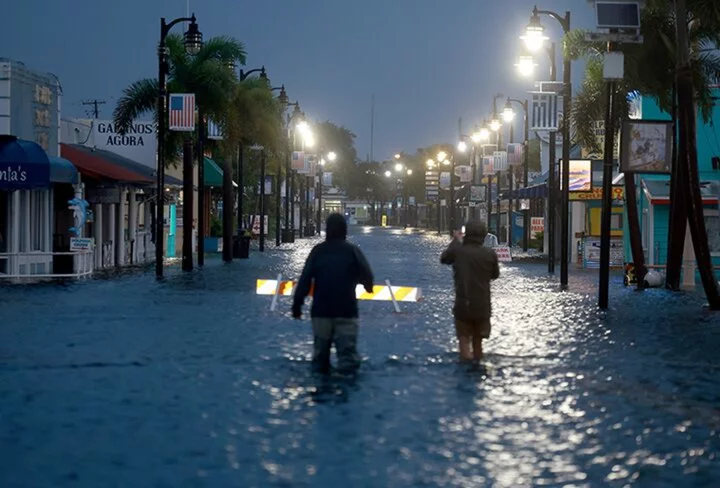
Hurricane Idalia Strikes Florida With Powerful Category 3 Winds
Hurricane Idalia came ashore on Florida’s west coast with destructive Category 3 winds, triggering blackouts and unleashing flooding
2023-08-30 20:54
